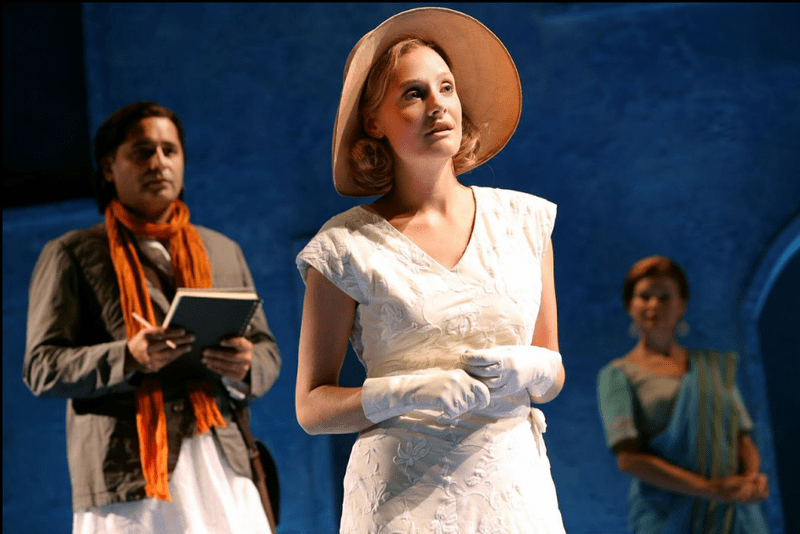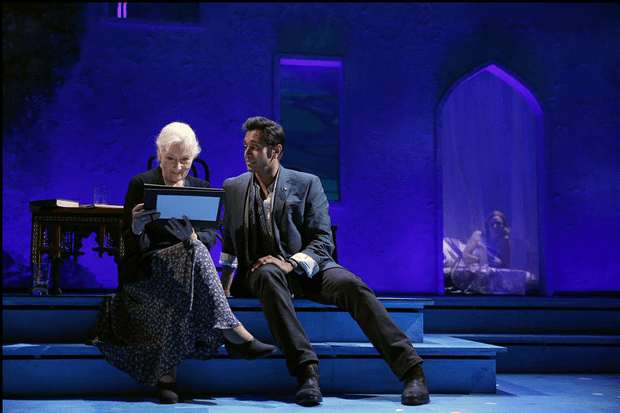
Even if you've walked where someone else has walked and have done your best to collect all the artifacts of someone's life, can you ever really know them?
Maybe, says playwright Tom Stoppard in "Indian Ink," now Off-Broadway at Roundabout Theatre. But only if you're an artist.
Stoppard tends to wind heady themes throughout his work, and there's no shortage of those here. There are discussions of what makes an artwork great, the morality of the British Raj, the subjugation of women and people of color, the inanity of civil servants, celebrity culture. And the play is funny, in the witty, British-y Stoppard way. But at its heart, it says that we're trapped by our own perspective, and so can't really understand the mind, ideas or soul of someone else.
As one character says, "Biography is the worst possible excuse for getting people wrong."
One man, American academic Eldon Pike (Neal Huff) is trying anyway. He visits an elderly woman (the inestimable Rosemary Harris) in the mid 1980s in England, because he wants to write the story of her sister, Flora Crewe, who was a literary sensation when she was young.
While we follow his quest, the narrative simultaneously goes back in time to track Flora, who has come to India in 1930 to escape gossip at home.
The locals treat her like a celebrity, as does Professor Pike, who is years in the future. But Flora (played by the ebullient Romola Garai, known for her starring role in the movie "Atonement") wants people to see her as she is: an adventurous, sensual woman and a serious poet. When she meets local painter Nirad Das (Firdous Bamji), he paints her — and through that, understands her.
Director Carey Perloff moves us effortlessly back and forth through time and across numerous locations. He's aided by the romantic (and clarifying) set design of Neil Patel and lighting of Robert Wierzel, who together evoke an India in a long-ago time, as well as a more practical, contemporary Great Britain, on one simple set.
But it is Garai's performance that really makes 'Indian Ink' unforgettable. In her capable hands, Flora is a whirl of contradictions — direct and mysterious, brave and anxious. In a way, she proves the play's point. It is through her artistry that Flora feels like a real person whom we absolutely understand.

